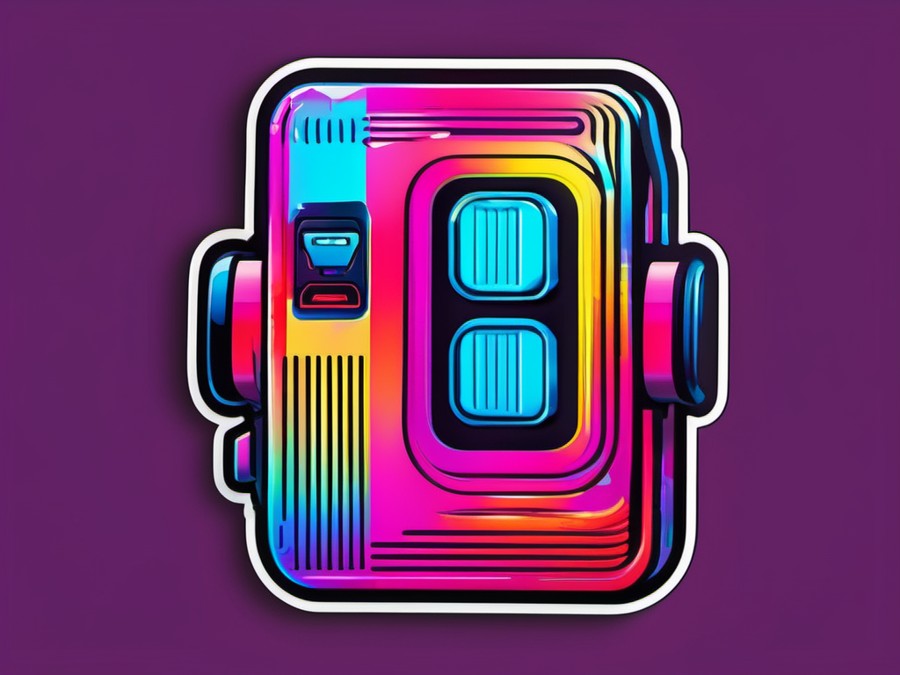· Charlotte Will · USB Gadgets · 5 min read
What is a USB Hub and How to Choose the Best One?
Discover how to choose the best USB hub for your needs, including understanding types and features, avoiding common pitfalls, and real-life examples. Enhance your connectivity and productivity today!

Introduction
Ever found yourself in a situation where you have more devices than ports on your laptop or computer? Or perhaps you’re looking to expand the connectivity options for your gaming setup, multimedia workstation, or portable workspace. Welcome to the world of USB hubs, your solution to all connectivity woes. But with so many options available, how do you choose the best USB hub? Let’s dive right in.
What is a USB Hub?
Understanding the Basics
Definition and Purpose
A USB hub is a device that allows you to connect multiple USB devices to a single USB port on your computer. Think of it like a power strip for your electronics—it expands your connectivity options and helps manage multiple devices more efficiently.
Why Do You Need One?
In today’s world of multiple gadgets, a USB hub can be a lifesaver. Whether you’re a gamer with numerous peripherals or a professional needing to connect various devices for work, a USB hub simplifies your setup and enhances productivity.
Types of USB Hubs
Unpowered vs. Powered Hubs
What are Unpowered USB Hubs?
- Pros: Compact and portable, ideal for light use.
- Cons: Can’t power high-consumption devices like external hard drives or chargers.
What are Powered USB Hubs?
- Key Benefits: Provide additional power to connected devices, making them suitable for more demanding setups.
Port Versions
- USB 2.0 Hubs: Older but still functional for basic needs like keyboards and mice.
- USB 3.0 Hubs: Offer faster data transfer rates, ideal for high-speed devices and external storage.
- USB C Hubs: Versatile and modern, supporting various connection types including DisplayPort and Ethernet.
Key Features to Look For
Data Transfer Rate
- Speed and efficiency are crucial, especially for high-bandwidth tasks. USB 3.0 and later versions offer significantly faster data transfer rates compared to USB 2.0.
Compatibility
- Ensure your hub is compatible with the devices and operating systems you use. Some hubs may have specific drivers or software requirements.
Port Expansion
- Determine how many ports you need. A hub with too few ports may not be sufficient, while one with too many might be overkill and more expensive.
Durability and Build Quality
- Consider the construction of the hub. Durable materials like aluminum can withstand frequent use and travel.
How to Choose the Best USB Hub: A Step-by-Step Guide
Identify Your Needs
Determine the Number of Ports Needed
- Think about all the devices you plan to connect. Having a few extra ports can be handy for future additions.
Consider Speed Requirements
- For high-speed data transfer, you might need a USB 3.0 or USB C hub. For basic needs, a USB 2.0 hub might suffice.
Evaluate Your Devices and Peripherals
Compatibility with Existing Hardware
- Make sure the hub supports all your devices. Some older hardware might not work with newer USB standards.
Check for Additional Features
Ethernet Ports
- If you need a wired internet connection, an Ethernet port can be essential. Find out more about docking stations for laptops.
DisplayPorts
- Useful for connecting external monitors, especially useful in multimedia workstations.
SD Card Slots
- Convenient for photographers or anyone who frequently uses SD cards.
Popular Use Cases for USB Hubs
Gaming Setups
- High-speed data transfer for controllers and peripherals is crucial. Check out our guide on choosing the best USB C hub for gaming.
Multimedia Workstations
- Connecting multiple devices for audio/video production requires a robust and versatile hub. Learn more about powered USB hubs.
Portable Setups
- Convenience and versatility on the go are essential. Discover the best USB car chargers for your needs.
Common Pitfalls to Avoid When Choosing a USB Hub
Power Issues
- Insufficient power supply for all devices can lead to malfunctioning or disconnection issues. A powered hub usually solves this problem.
Connectivity Issues
- Troubleshooting and maintenance can be a hassle. Opt for a reliable brand known for its durability, like Sabrent or AmazonBasics.
Popular Brands and Models in the Market
Anker
- Known for durability and versatility, Anker hubs are a popular choice among users.
Sabrent
- High-speed and high-quality hubs, perfect for professional use.
AmazonBasics
- Affordable and basic solutions that get the job done without breaking the bank.
Real-Life Examples: Users Share Their Experiences
The Gamer Who Needed More Ports
- Challenges: Managing multiple peripherals with limited ports.
- Solutions: Investing in a high-speed USB hub specifically designed for gaming.
The Traveler Who Wanted a Compact Setup
- Challenges: Carrying too many adapters and chargers.
- Solutions: Opting for a portable USB hub that fits easily in a bag.
Conclusion
Choosing the best USB hub can significantly enhance your connectivity and productivity. Whether you’re a gamer, multimedia professional, or always on the go, there’s a USB hub that fits your needs. By considering factors like port expansion, data transfer rates, and additional features, you can make an informed decision. Happy connecting!
FAQs
What is the difference between USB 2.0 and USB 3.0 hubs?
USB 3.0 hubs offer faster data transfer rates compared to USB 2.0, ideal for high-speed devices and external storage.
Should I opt for a powered or unpowered hub?
If you need to power high-consumption devices like external hard drives or chargers, a powered hub is recommended.
Can a USB hub improve my data transfer speeds?
Yes, especially if you opt for a USB 3.0 or later hub. These offer significantly faster data transfer rates compared to older versions like USB 2.0.
What should I do if my devices aren’t recognized by the hub?
Check for compatibility issues and ensure your devices and operating system are supported by the hub. Sometimes, updating drivers can help.
Are there any security concerns with using a USB hub?
While rare, there can be security concerns related to data transfer. It’s always wise to use trusted brands and keep your software up-to-date for better security.




